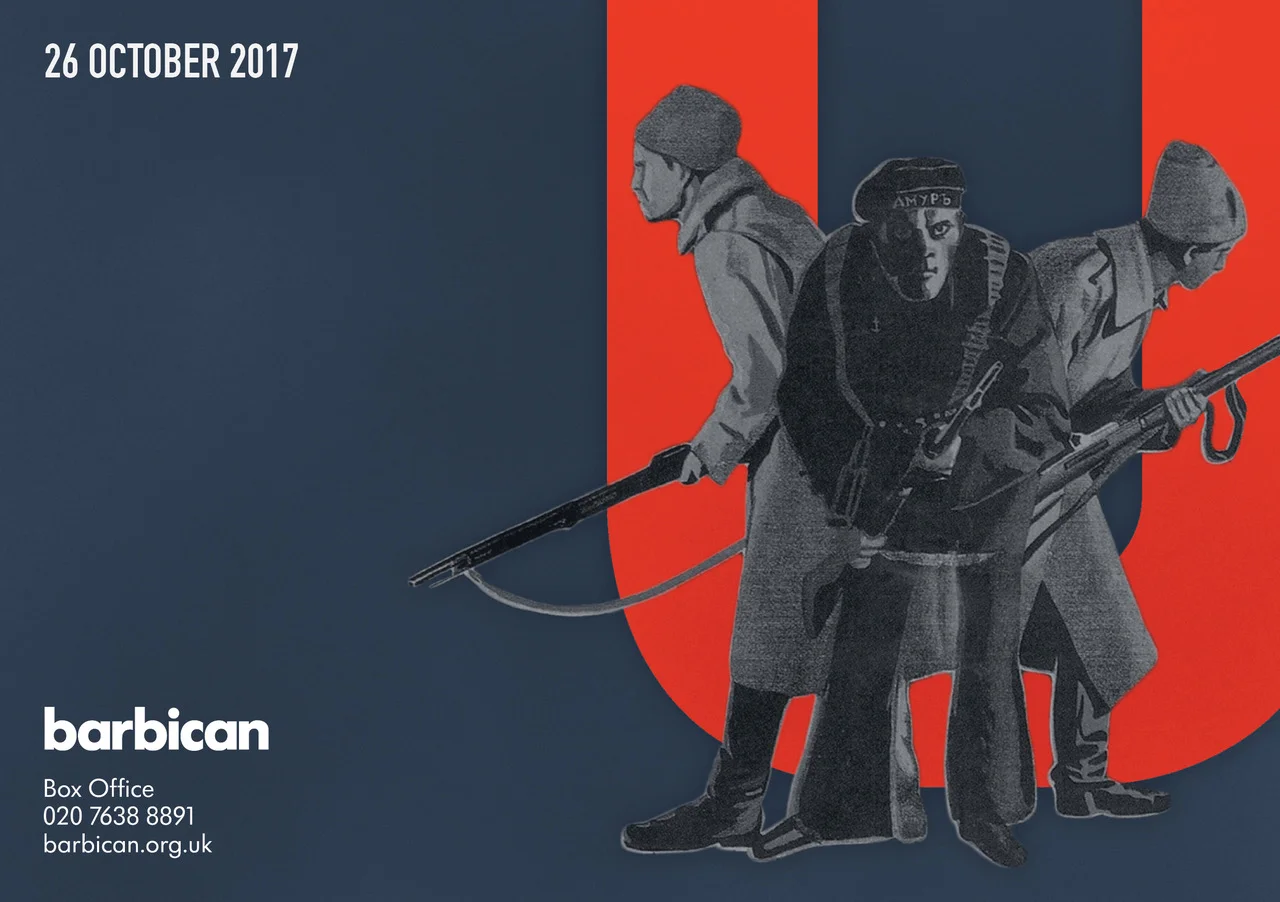We are delighted to present a conversation between film expert and musicologist John Leman Riley and leading conductor Frank Strobel, ahead of a historic screening of October two days later at the Barbican accompanied by a full symphony orchestra playing Oliver Meisel's original 1928 score that Frank will conduct.
Leman Riley and Strobel will be exploring the history and continuing relevance of Soviet film music, its innovation, creation and suppression.
Sergei Eisenstein’s 1927 cinematic masterpiece, October: Ten Days that Shook the World is one of the most iconic films of the 20th century: it is an epic recreation of the events that led to the storming of the Winter Palace in October 1917. On the basis of the success of Battleship Potemkin, the film was commissioned by the Soviet government to commemorate the 10th anniversary of the Revolution. The film occupies a unique place in Eisenstein’s work: its powerful, highly personal and controversial propagandist images led to widespread banning, with the first screenings in Britain only in 1935.
This is an extraordinary opportunity to witness a conversation between esteemed musicologist and film expert John Leman Riley, and conductor Frank Strobel who has worked in the fields of Soviet and Russian music and film of this period for many years.
With his exceptional musicianship, versatility, technical expertise and dedication, Frank Strobel has established himself as one of the most multisided conductors of his generation. Internationally renowned with world premieres and reproductions of works of composers such as Sergei Prokofiev, Alfred Schnittke, Frank Schreker and Siegfried Wagner, from which many debut recordings emerged, he opens up new insights into the world of film music. Strobel is strongly committed to the works of Alfred Schnittke and is the authorized editor of the work of the composer, whom he helped notating his works in his final years. As well as editing and conducting the original music for silent film classics, Frank Strobel has made a specialty of arranging and performing new scores. Frank Strobel edited the reconstructed original music by Prokofiev for Alexander Nevsky. Robert Wiene’s restored film Der Rosenkavalier with music by Richard Strauss has been performed under the direction of Frank Strobel with renowned international orchestras.
Frank Strobel has been active for many years in the interdisciplinary field of film and music and is a leading figure in the “film in concert” movement. He has taken silent movies into opera houses and concert halls to great critical acclaim. Strobel is admired as conductor of concert repertoire of the Classical and Romantic eras and also the 20th century. He has an extensive experience as a conductor, arranger, producer and studio musician.
Frank Strobel acts as an adviser to ZDF/arte for its silent film programming. Since 2000 he has been artistic director of the EUROPEAN FILMPHILHARMONIC INSTITUTE, which he co-founded and which has a reputation for its expertise in authentic performances of film scores.
John Leman Riley is the author of Dmitri Shostakovich: a Life in Film (Tauris) andDiscover Film Music (Naxos), for which he also curated the accompanying CDs. He has written academic chapters for university presses including Oxford, Cambridge and St Andrews and publishers including the BFI, Routledge, Greenwood and others. Additionally, he has also written for The Times, The Independent, BBC Music Magazine, BFI, the Barbican, CD and DVD companies, orchestras, cinemas etc. Currently, John is working on Oedipus, his first (completed) play. He is also participating in poetryartexchange, a collaborative venture in which writers from Romania and the UK respond to each others’ texts. John is also the Reviews Editor of DSCH (dedicated to the life and music of Shostakovich), and the English Language Editor of Apparatus, a new academic journal dealing with film, media and digital cultures of Eastern, Central and South-Eastern Europe – current and historical.
Still images (c) Eisenstein Centre Moscow
Still images (c) Eisenstein Centre Moscow
Visit the Kino Klassika website here.
Please note that Pushkin House will hold the tickets of latecomers for twenty minutes following the event start time, after which unclaimed tickets will be released.
If you are running late, please contact us in order to avoid this.






